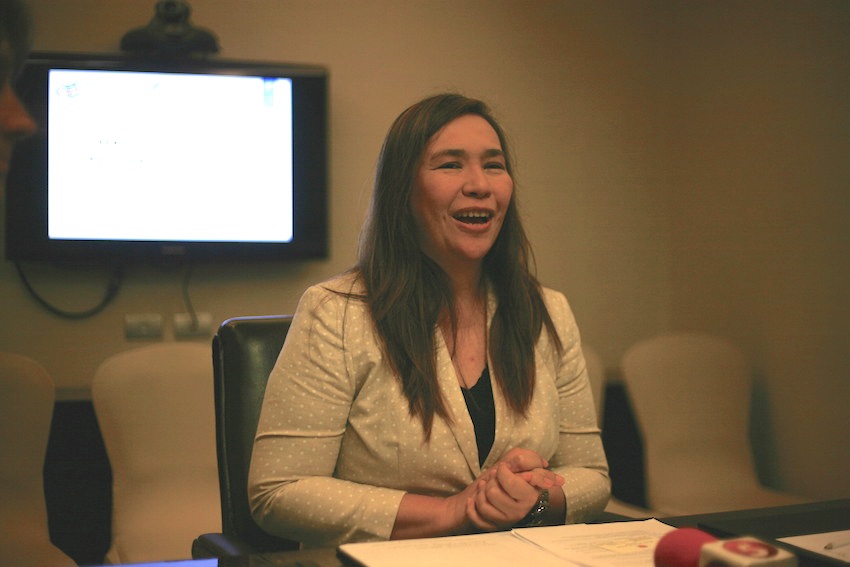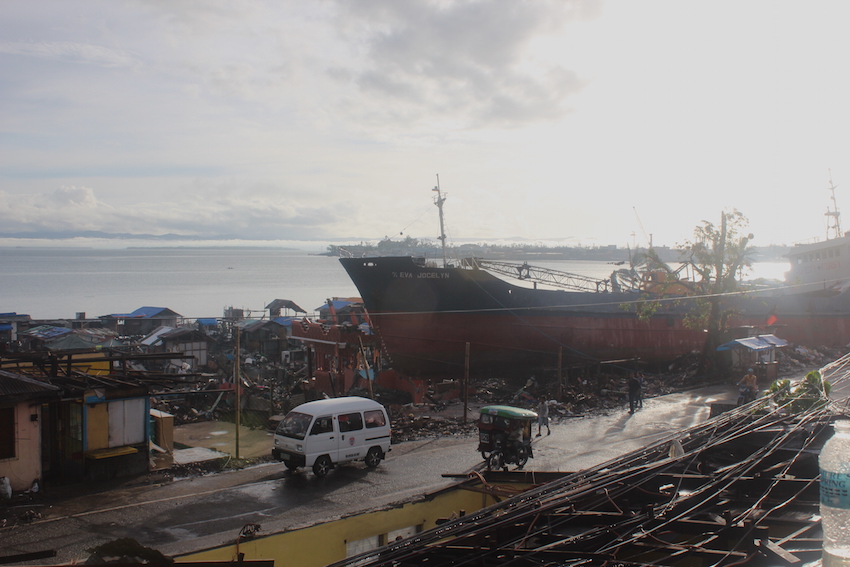MANILA— Climate-vulnerable nations will soon share a climate change knowledge and training center that will soon rise at the Clark Green City in Pampanga. Thanks to the German government for the 3 million euros (P147 million) fund dedicated for the training facility.
Dubbed the South-South Center of Excellence for Climate Information and Services will benefit the 20 most vulnerable nations to climate change, which form the Climate Vulnerable Forum (VCF), according to Climate Change Sec. Lucille Sering, who also chairs the VCF until the next election in mid-2016.
“The World Meteorological Organization based in Geneva will serve as technical adviser for the center, which is set to be operational by third quarter or early fourth quarte, before the Paris climate talks,” Sering said during the VCF Regional Workshop held this week in Manila.
The VCF is not a negotiating block in the climate talks and this is a good thing, notes Sering, because its “members share a common interest—how to resolve their country’s vulnerability to climate change.”
“The VCF countries have the most to gain from policy talks that deliver its promise and also have much to lose from one that fails to do so,” says Matthew McKinnon, VCF support specialist under the United Nation Development Programme’s Bureau for Policy and Programme Support.
McKinnon hopes that through the training center, the Philippines—as a leader in climate policy and governance—will be able to help share its best practices to other countries.
Members of CVF include Afhganistan, Bangladesh, Barbados, Bhutan, Ethiopia, Ghana, Kiribati, Kenya, Madagascar, Maldives, Nepal, Rwanda, Saint Lucia, Tanzania, Timor-Leste, Tuvali, Vanuatu, and Vietnam.
The experience of devastating floods is also experienced in other countries. Bangladesh Ambasador to the Philippines Major General John Gomes notes that half of his country’s land area are submerged to floods, with the water coming from the melting caps of the Himalayas.
For the center, Gomes hopes to share with the Philippines the experience of his country to implement the uptake of solar energy through affordable PV cells.
Countries under VCF, which includes the Philippines, are already experiencing extreme flooding from powerful typhoons such as Haiyan in 2013 and Pham recently, alongside extreme heat during summer—even before reaching 1 degree Celsius increase in global temperature, according to the official.
“We (VCF) are looking at a more ambitious GHG emission reduction, one that will realize a global temperature below the 2 degree C limit that science has set,” Sering said.
High hopes for Paris
The VCF, an informal group of 20 climate vulnerable nations, is seen as a strong voice not of climate victims but as leaders of climate resiliency, notes Sering.
“In a sense, the VCF is a response to the negotiating block’s way of doing climate talks. It is a unique coming together irrespective of negotiating blocks to help develop and incubate new ideas that is borne out of the need for transversal collaboration and dialog across groups,” notes McKinnon.
The UNDP official adds that aside from adaptation, vulnerable countries have a strong case for adopting renewable energy resources such as solar, wind and tidal because these are readily available to them, instead of importing coal and fossil fuels that contribute to climate change.
Sering hopes that through the forum, the member countries will be able to come up with an outcome document that will make a strong case to raise the question on the need to keep the target increase at below 2 degrees Celsius.
“We cannot afford to fail in Paris and we want to save it as a process to move forward. Climate change is not only about risk but opportunity as well,” concludes Sering.
text and photos by Anna Valmero
Anna Valmero
Latest posts by Anna Valmero (see all)
- Thousands took to the streets of Paris for climate action - December 13, 2015
- Rallies call for climate change action - December 12, 2015
- Climate-induced migration must be at the core of the Paris deal - December 11, 2015


